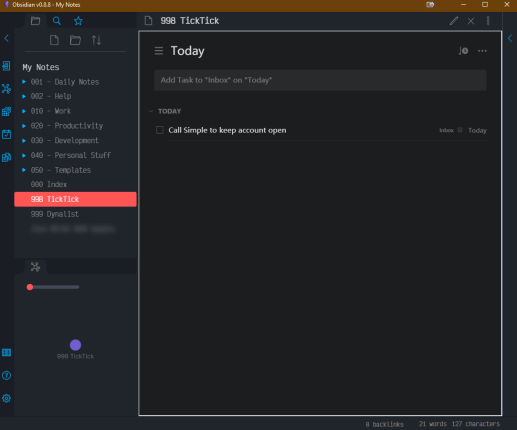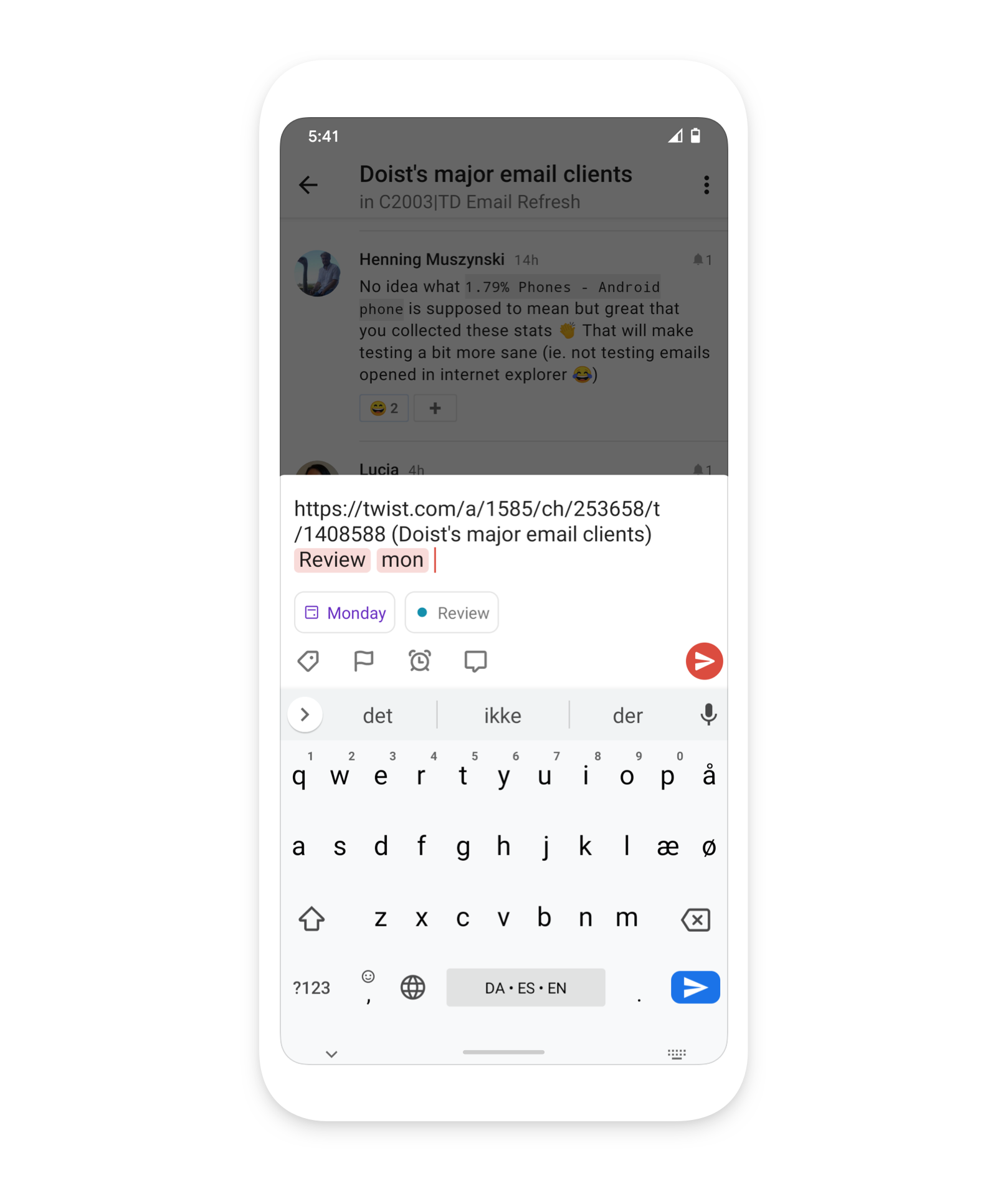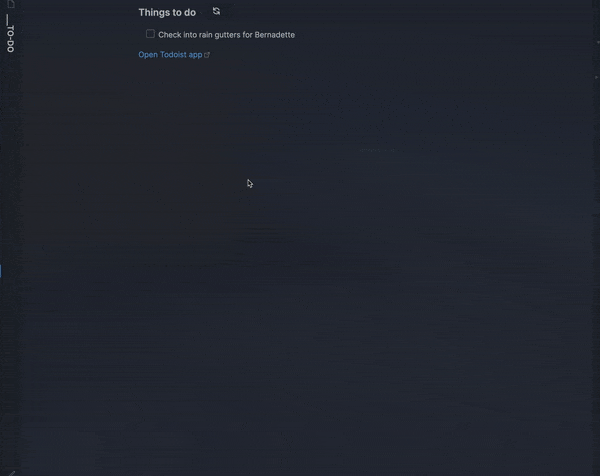If Todoist was a bit too cluttered. Then Things 3 is the clutter-free minimal design you might be looking for, with an entirely different method to working (upcoming, anytime, someday). OmniFocus, Todoist, Things, Trello, Ulysses, Bear, Scrivener, Roam Research, Obsidian, Twitter, Mastodon, Ahhhhh! I'm exhausted just listing these. But there's one tool that can grow with you and the feature list is endless. That's what we're here for. Obsidian Notes is an interesting productivity application. It is a Markdown-based system that incorporates tags, plugins and backlinks to create a compelling to use system. That said, it can be hard to know how to get started in Obsidian Notes. That is the purpose of this beginner’s guide.
2020 was a great year for productivity apps.

With the rise of Notion, Coda, and other no-code tools plus the exploding need for productivity apps due to everyone working at home during the pandemic, this genre has been flooded with possibilities.
Azure storage explorer tool download. I have a great love for organizing things and testing out new tech so trying all of these apps has been a veritable playground for me.
I've taken a deep dive into quite a few of these apps during the past year, going so far as to set up a full Life Operating System (inspired by August Bradley and Marie Poulin, thanks y'all!) in both Notion and Coda as well as extensively using quite a few others. (Stayed tuned for some videos and articles going through my Life OS)
What I've Tried
Here are the main applications that I used in 2020:

- Notion
- Coda
- Craft
- Evernote
- Roam
- Obsidian
- Google Tables
- Airtable
- Google Sheets
- ClickUp
- Todoist
- Dropbox Paper
The ones that I used the most extensively were Notion, Coda, Airtable and ClickUp. I set up a full system in the first two and went as far as I could to do so with the last two.
I've learned quite a bit about each product along the way and will cover them individually in detail in future posts.
I've also learned a lot about what I do and don't want in a productivity app and what I do and don't need.
The app that I have ended up fully adopting is Coda. At the same time, while I love so much about it, there are still some key features that it's missing for my workflow. In fact, my top apps all seem to be just one small change away from really satisfying my needs.
So I'm in somewhat of a holding pattern, waiting to see which product will release the next big update fulfilling what I'm looking for. Which one will win the race to integrate 'the missing feature'?
What I'm Looking For
So what am I looking for? Deezer++ ios.
If I could build my perfect productivity app, here is what it might look like:
- Local storage, open source and privacy of AnyType.
- The power and flexibility of Coda's formulas. Inline formulas too!
- Task management from ClickUp, Todoist and OmniFocus.
- Databases/tables from Airtable, Notion and Coda.
- Craft's speed, UI and just plain slickness.
- Notion's aesthetic and doc organization.
- Backlinks and networked thought à la Roam Research.
- ClickUp's roadmap and feature request transparency.
- Notion's community engagement and availability of learning resources.
- The cross-platform quick entry/web-clipper options of Evernote.
- Scalability and performance of Airtable and Google Sheets when it comes to larger tables.
- Coda's customer service.
- Table rows as pages and self-referencing filters from Notion.
- ClickUp, Airtable and Coda's integration options and API. (Integromat is life!)
- Native apps like Craft.
- Coda's charts.
- The Siri and iOS widget integrations from Todoist and OmniFocus.
- Notion's fairly low (or free) subscription cost.
- Powerful math functions from Google Sheets.
Now, as someone with programming, UX and development experience, I understand that some of these wishlist items directly conflict with each other and just aren't practical in one product (although I think the folks at ClickUp might think otherwise! lol).
My Frontrunners
I know there are going to be trade-offs.
So of my top apps here are the main things I'm looking for to fully make a switch:
Notion: More powerful, flexible and inline formulas. API access and automations (recurring tasks is a deal breaker for me).
Coda: Table rows as pages. More flexible page layouts. Self-referencing filters.
ClickUp: Documents as first class citizens, different navigation and greatly simplifying the UI.
**I will continue using Roam until someone integrates backlinks like they do. Also, I'm waiting to get access to the AnyType alpha, so I'll reserve further judgement until then.
Obsidian Todoist Quartz

Basically, whoever implements these items first will get my business. From some of my discussions I think we're super close to seeing some of these. My understanding is that these 3 products are working on items from my list right now.
So who will get there first?
I want to close by saying I am blown away by all of the talented and fantastic developers, designers and teams creating these incredible tools for the rest of us to use! We're living in a time of amazing ingenuity and the pace and sheer number of new apps and features that are coming out is mind-blowing. Props to y'all.
What about you? What would make your perfect productivity app?
Enjoying these posts? Subscribe for more
Staying productive in a digital world can be hard without the right tools. I have assembled a list of great apps that I use everyday that make my life easier.
Bear
Bear is a note taking app that brilliantly simple.
Where it thrives is its ability to use anywhere in your note and sort them into collections.
What makes Bear one of my favorite note taking applications is the fact that it's all markdown under the hood. Which means if I wanted to export all my notes out of Bear, I can with ease. I like that I own my data. My ADHD brain needs something flexible like this to stay organized.
I have been trying to take more notes lately and to build up my second brain.
Bear is an excellent value at only $15 a year. That gets you a mobile app and a desktop app. Saajan saajan teri dulhan mp3 songs pk. The developers behind Bear are also working a major rewrite to make a web version as well.

Obsidian
Obsidian is the newest player in my arsenal. It is a research note taking app created during the Covid-19 lockdown as a fun project. quickly evolved into quite a hit.
What makes Obsidian different ? Its based off of the zettelkasten system. Which is a system of taking notes and linking them together with certain phrases or words.
I will be the first to tell you I am no expert at this system but I love the idea of having my own database of knowledge.
Obsidian comes into play because they support backlinks in notes. Which is a way to connect 2 markdown files to each other. Obsidian also has this cool feature to see how your notes connect.
It has become one of my favorite apps and has tons of features like a daily notes. The app uses CSS for custom themes so it's a breeze to make it look how you want.
Right now I am using it alongside Bear to import notes that I want to move to a more permanent solution.

Todoist
Todoist is a new one for me. For a long time I opposed this kinda of 'subscription todo app', but it has been very beneficial in helping get my life together. The neat thing about about Todoist is projects and the ability to separate many tasks.
Figma
Figma is a blast to work with for creating icons or UI mockups .
The fact that is free blows my mind. I have started to work on my own icon-set in it. My logo was also created in it. It's a joy to use.
Plus it has the ability to collaborate easily with real time editing.
Conclusion
Obsidian Todoist Stone
These are just a few apps I use. I plan to write more about the other ones I love.
